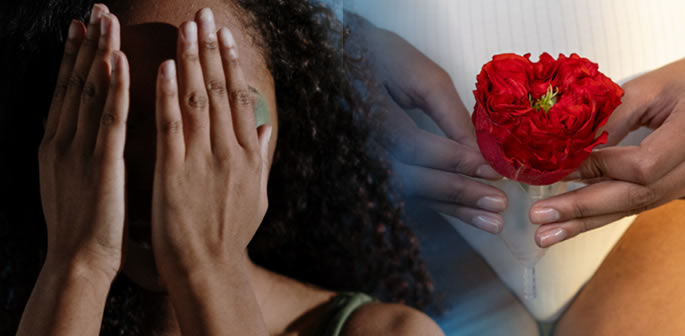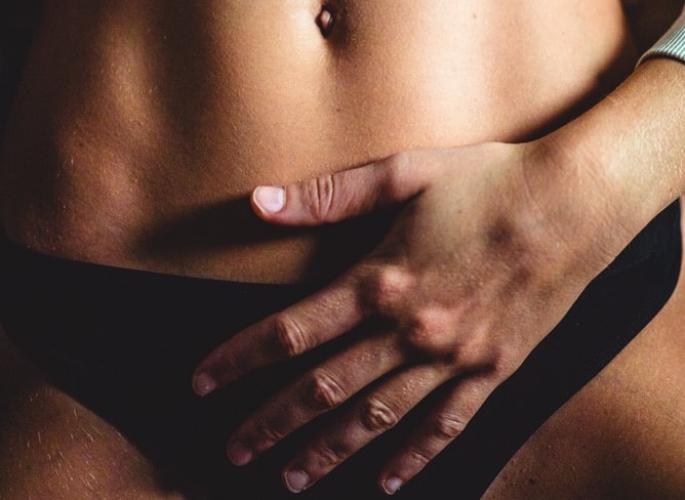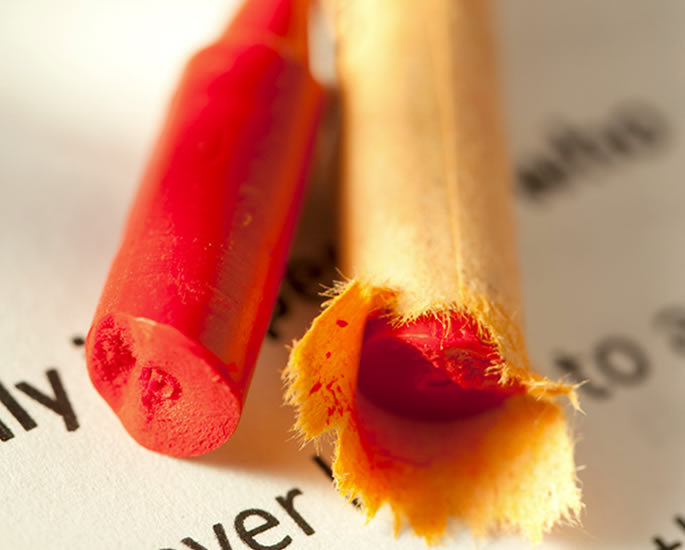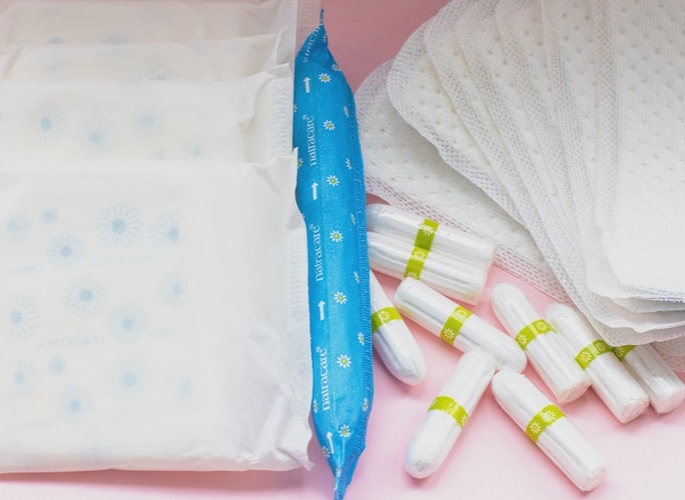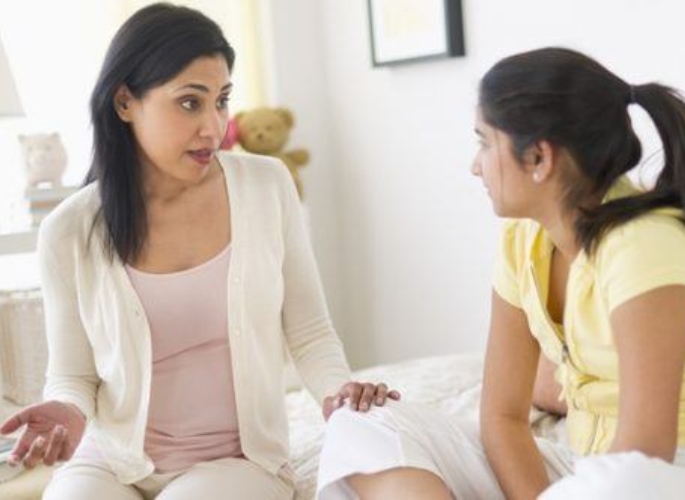"My sisters and I would hide our sanitary products"
Period stigma toward girls is common throughout South Asian communities in the UK.
Society often deems the menstrual cycle as impure, dirty, and unclean rather than natural.
The taboo of menstruation exists in many cultures around the world. Periods are often seen as shameful or embarrassing.
In reality, the conversation about periods should be straightforward considering most girls experience them for the majority of their lifetime.
Yet, when even the word ‘period’ is so difficult to say, there’s an evident lack of authentic conversations around menstruation.
In research from Action Aid, 54 % of British girls are embarrassed about discussing periods.
Despite sex education in UK schools, it is clearly visible that stigma, shame, and lack of resources are still affecting girls in contemporary times.
Some organisations and schools are tackling the stigma surrounding periods. DESIblitz explores the regressive attitudes around menstruation and the ways people are challenging this.
Period Stigma and Shaming
Generations of South Asians have not been educated on periods. It is a secret that should never be discussed.
Therefore, parents have passed on this mindset of not talking about periods to their children.
A 2018 study commissioned by Action Aid reveals that three in four UK women have experienced period shaming as young girls at school.
‘That time of the month’ is seemingly a reason why young girls feel bullied, isolated, and laughed about.
South Asian girls in the UK face period stigma from a young age. Many feel embarrassed the first time they see a red stain.
A YouGov poll highlighted that 24% of girls in the UK felt confused when they got their periods. Safia Khan, a civil servant aged 28 from Wooton, recalls getting her period at 14:
“We were at the shopping centre and I felt something dripping.
“I remember being mortified and scared – I had no idea what it was.”
Safia’s parents had opted out of allowing her to receive sex education in school. They had not supplemented this by teaching her at home either.
Safia was insufficiently prepared for her period. Furthermore, it was treated as something to be ashamed of.
The period stigma has enriched the sense of shame that some British Asians face.
A startling 63% of UK women said they have experienced shaming through jokes at home and 77% said this happened at school age.
It is damaging to gender equality to see that South Asian girls experience negative feelings about something as natural as periods.
Period Stigma at Home
Shockingly, much of the period shaming comes from people closest to the victims. This includes partners, friends, and family members.
Gurleen Chohan, aged 32 from Lemington Spa recalls the stigma in her household when growing up:
“I knew about periods but my mum never spoke to us about it. Boxes were used to hide pads so the boys could not see them.
“I was overwhelmed by the secrecy. The subject was tiptoed around so I felt dirty during the time of the month.”
Gurleen recalls standing in the shower and feeling a sense of calm when all the “dirty” blood had washed away.
Similarly, Navdeep Kaur, a 19-year-old Economics student from Lewisham tells us:
“My sisters and I would hide our sanitary products in pockets and under our shirts. We then scurried to the bathroom.”
Navdeep says she thinks period stigma is wrong. She believes girls should be at ease with their periods, particularly in the comfort of their own homes.
For some British Asians, period stigma is becoming less controversial.
Farah Haddi, a 23-year-old Media student from Northampton, remembers the closeness and frankness she had with her mum about periods:
“We’ve always had a good relationship and my mum is very open.”
“I think that’s because she had to learn it all herself because her mum never spoke about sex, periods, men – anything.
“My mum was very collected when I first screamed to her that there was blood on my underwear.”
It is often left to younger generations to move beyond their parents’ lack of knowledge. Starting the conversation with your own children at home is vital.
We must teach young girls that their periods are nothing to be ashamed of. If girls cannot feel fully comfortable at home, where can they?
Embarrassment at School
Due to the stigma around the uncleanliness of periods, South Asian girls feel anxious at school during their menstrual cycle.
Some even take several “sick” days for fear of leaking onto clothes and being teased. Ravinder Paul, a 44-year-old receptionist from Brighton describes her traumatic experience:
“I vividly remember bleeding through my school uniform one day.”
She continues recalling:
“I was wearing grey trousers and you could clearly see a stain on them and the plastic chair. A teacher embarrassed me in front of the whole class. To them, it was a light joke but it seriously affected me.”
Since then Ravinder has noticed that she only wears black jeans when she has a heavy flow:
“I feel scarred from those laughs – I don’t know how some girls are confident enough to wear white.”
In modern times, Jaspreet, a mother of two young teenagers from Bedford states:
“My daughters and their friends hate doing PE class when they are on their period. I tell them that it is fine and nothing will happen but they are fearful.
“They don’t want to be the laughing stock. Seeing a red spot still causes the same reaction as when I was at all.
“Times still need to change – we aren’t close to eradicating period stigma and normalising it.”
UK schools definitely need to do more in teaching young boys and girls not to ridicule one another.
Choosing Sanitary Products
Period stigma in British Asian families means that lots of girls are uncertain about the best sanitary products.
Girls in the UK are taught about sanitary products at school. However, some South Asian families prevent their children from participating in social activities if they are on their period.
Therefore, some British Asian girls still see periods as impure, showing that these archaic thoughts remain.
Some girls will refrain from attending places of worship because it feels wrong.
But how does one go about choosing sanitary products when it is rarely spoken about? Sanitary towels, at the very least, are less taboo.
Nonetheless, other options can be more beneficial during different activities.
For example, sporty people may prefer menstrual cups or tampons as they restrict movement.
However, many older generations have never used tampons themselves. Therefore, many find it difficult to introduce their children to them.
For Farhat Aziz, a 26-year-old receptionist from Milton Keynes, tampons are her go-to sanitary product. Tampons allow her to move about when swimming – a regular activity for Farhat.
Farhat discusses how she did not let her first period get in the way of a swim session:
“I was about 14 when I started my period and had a swimming event coming up. People told me I may have to miss the event.
“Tampons were far from my mind because I’d never used them before or even had friends who would talk about it.”
“My mum and aunties didn’t know either so I had to go to my friend’s mum. Luckily, she explained what to do.”
Farhat has never missed a swimming competition due to her cycle. Other girls should also be aware of the options they too have. This can prevent them from missing out on sports, adventures, or even holidays.
Hiding Your Period From The Outside
Asian communities are very tight-knit. Older generations have passed down their stigmas.
Manjit K. Gill, the founder of Binti, a UK-based charity that aims to tackle the stigma of menstruation in South Asian cultures, has experienced this first hand. Manjit says:
“I have stories of people thinking they’re dying because they’ve got no idea what is happening.”
People do not feel they can approach their parents with such a taboo topic.
Stories of girls not being able to attend weddings, funerals, or faith-related festivities are not uncommon.
It is easy to think this is an issue in other countries. However, it may be shocking to learn that this occurs in the UK too.
Meenakshi Thagie, an 18-year-old student from London, remembers when her aunty was unable to attend her father’s funeral because of her period.
This goes back to the notion of it being impure and even contagious. Younger generations must fight this sense of shame.
Period stigma has even caused Desi people to reschedule big events like weddings.
Moreover, period stigma is so rife in the UK that even the more “progressive” parents have period shaming tendencies.
For example, Sonia, a 23-year-old Marketing student from Nottingham says:
“My mum is one of the most open and honest people when it comes to such topics. But even I notice her pushing sanitary items to the bottom of the trolley at the supermarket.
“When I was little, I recall her pad falling from her handbag.”
“She apologised to the cashier several times. It’s completely unnecessary – what should she be sorry about?”
It is clear that the younger generation of girls are more open and honest about periods.
They generally are less conscious than their elders about masking the fact they are on their period when in public.
Eradicating The Period Stigma
Changing South Asian perceptions about periods for the younger generation is a work in progress.
It seems that some people are encouraging open conversations. Others are too reserved to talk about all things menstruation with their girls.
Cultural silencing has meant that even educated people in the UK struggle to manage periods with pride.
Instead, it has become a gendered topic whereby girls should feel inferior and embarrassed in the company of men.
Periods have also become a barrier for people to do things they enjoy.
In actuality, periods should not affect anyone’s daily life.
From charities like Binti to encouraging parents and better schooling, the stigma of periods is beginning to change.
Girls cannot prevent or ignore their periods. When British Asian girls are denied the ability to manage their periods with dignity, gender inequality becomes more difficult to conquer.
The stigma will slowly be eradicated with open and honest conversations. After all, menstruation should not be stigmatised when it is a natural monthly occurrence.



















































